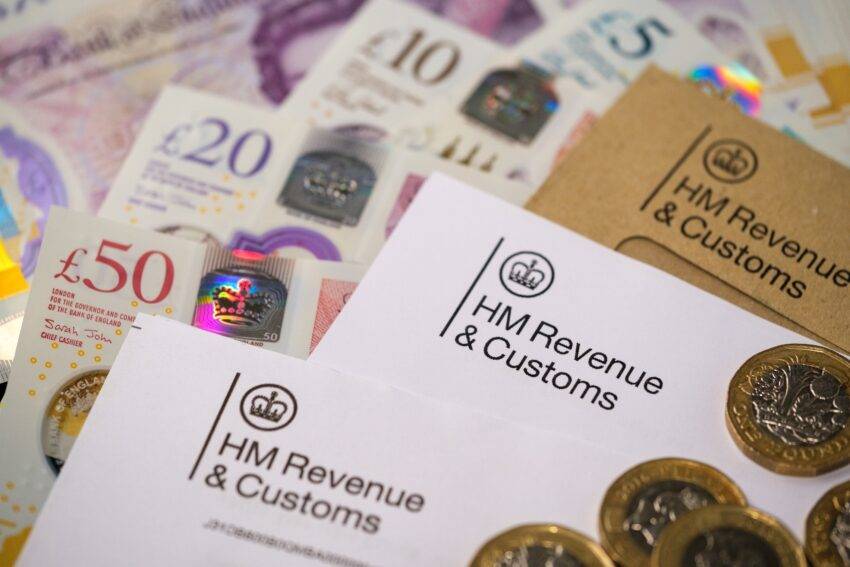EU gears up for fight with Russian energy holdouts
Brussels will soon tell Hungary and Slovakia to stop dealing with Moscow — whether they like it or not. But the EU’s enforcement plan is fuzzier.
BRUSSELS — The European Union wants its members to stop funding Russia’s war in Ukraine. And it’s done with asking nicely.
An ambitious new strategy launched by the EU’s executive on Tuesday would, if implemented, effectively end Moscow’s lucrative gas sales to the continent in 2027 and require gas firms to break contracts with the Kremlin.
That sets the stage for a major showdown between Brussels and the handful of leaders still pushing Russian energy. Yet while EU officials are talking tough, questions instantly arose on Tuesday over the practicality of the proposal and whether countries would actually enforce it.
The plan puts countries like Hungary and Slovakia directly in the EU’s crosshairs. Both have unabashedly kept pumping Russian fuel throughout the war, helped block further energy sanctions in Brussels, and pushed back against support for Ukraine.
On Tuesday, EU Energy Commissioner Dan Jørgensen stressed that unlike sanctions, the upcoming proposals would not require unanimous support to pass — meaning EU countries could overrule Hungarian and Slovak objections.
“I hope that everybody will move forward, obviously, but if they don’t, that is also OK,” he told reporters at the European Parliament in Strasbourg. “That is also part of the EU, that sometimes the majority makes decisions when necessary.”
And if reluctant countries still don’t comply, Jørgensen said: “We of course have the normal procedures of how to deal with that.”
The forceful message caught some diplomats by surprise, even as they said questions still needed answering. “I’m quite impressed,” one diplomat said. “I’m not compassionate for Hungary, and … for Slovakia, as well.”
Another credited Brussels with finally ensuring “the message is clear,” even if it still needs to give “assurance” that the plan is “legally feasible.”
Bad news for Brussels’ bad boys?
For three years the EU has granted a few countries, including Hungary and Slovakia, numerous carve-outs to get their energy penalties approved.
Hungarian Prime Minister Viktor Orbán and Slovak leader Robert Fico are using those loopholes to keep Russian gas and oil supplies flowing, leveraging what were intended as temporary exemptions to cash in on the wartime energy trade through transit fees and selling fuel on the open market.
In September, Hungary struck a deal with neighboring Ukraine to ensure it could still receive deliveries of Russian pipeline crude, while Slovakia has repeatedly tried to get Brussels to help it in a dispute with Kyiv after the country’s gas supplies from Moscow were cut off. Now, experts say, they could finally face the costs of Moscow’s full-blown war.
“Hungary and Slovakia are landlocked countries, so it could be expensive for them to tap into seaborne shipments of liquefied natural gas,” said Laura Page, lead gas analyst at intelligence firm Kpler. “We know that the Central and Eastern European area has loads of pipeline bottlenecks, so there are issues with them finding alternatives.”
Jonathan Stern, founder of the gas program at the Oxford Institute for Energy Studies, warned that Hungary and Slovakia would “want to be compensated” for the costs of finding supplies elsewhere.
Fico pounced on that talking point before Tuesday’s plan was even announced. Brussels, he said on Monday, is “for purely political reasons, creating conditions for further increases in gas prices.”
Hungarian Foreign Affairs Minister Péter Szijjártó latched onto it as well Tuesday evening, calling the plan on X a “serious mistake” that “threatens energy security, drives up prices & violates sovereignty.”
Jørgensen insisted that the European Commission, the EU’s executive, would help countries divest — and argued that internal estimates showed the bloc overall wouldn’t see higher prices.
“We do not neglect the fact that for some countries, this will be a harder transition than for others,” he said. The Commission, Jørgensen added, will help “using the different tools that we have, so that no countries are hit too hard from this” — though he was vague on specifics.
Unlikely bedfellows
It’s not just the two most Kremlin-friendly EU countries who are facing the music. Energy companies will also have to comply with the new rules if they’re adopted.
A spokesperson for French firm TotalEnergies, which has hinted it could return to doing business with Russia after the war in Ukraine ends, said it would not comment on “political fiction” in a statement to POLITICO.
The firm insisted it would meet its “duty to contribute to the security of Europe’s gas supply … under long-term contracts that it must honour as long as European governments do not impose sanctions against Russian gas.”
Indeed, it’s not yet clear exactly how Brussels’ plan would work in practice.
“Where will the data be reported to? And who will be monitoring enforcement? What will the penalties be? Do we trust the Bulgarians or other pro-Russian governments to say where they import gas from?” wondered Aura Sabadus, a gas markets expert at commodities giant ICIS.
Brussels argued that the proposals will be legally robust. According to one EU official, the ban would allow firms to declare force majeure — breaking their contracts — due to an unforeseeable event (like sanctions).
“Believe me,” said the official, who was granted anonymity to speak freely, “we know very well what we want [and] how we can do this in a safe manner that is legally solid, that avoids litigation risk, that avoids economic risk for the market participants and suppliers.”
The official added: “It’s a trade policy, and like any other trade policy where we choose our partners … if we have a problem with one partner, we react to it.”
Lithuanian Energy Minister Žygimantas Vaičiūnas, whose country has long pushed for more Russian energy restrictions, predicted a “smooth adoption and implementation,” calling the move “good news.”
Things get complicated, though, when security concerns enter the equation. What if a country says it can’t enforce the law for national security reasons?
“Hungary, Slovakia, Czechia, Bulgaria — they’re going to produce a very nice plan where they’ll put some milestones and targets,” said Martin Vladimirov, director of energy and geoeconomics at the Center for the Study of Democracy. “But ultimately their politicians will insist it is too risky for their security of supply and ignore the plan, just as they have done with other plans on the phaseout of coal or on renewables.”
In the meantime, he added, “Russia is gaining billions.”
Alexandre Léchenet contributed to this report from Paris.




















:quality(85):upscale()/2025/01/08/844/n/1922398/cde2aeac677eceef03f2d1.00424146_.jpg)
:quality(85):upscale()/2025/07/10/708/n/1922398/8fe2782e686fe372b38bf8.29984296_.jpg)
:quality(85):upscale()/2025/07/02/859/n/1922398/d8afa3b768658a601527c2.07656391_.jpg)
:quality(85):upscale()/2025/02/27/808/n/1922398/26784cf967c0adcd4c0950.54527747_.jpg)















